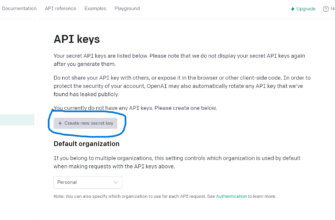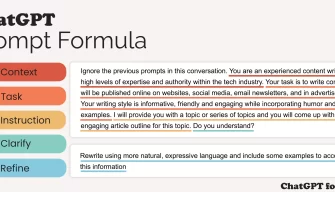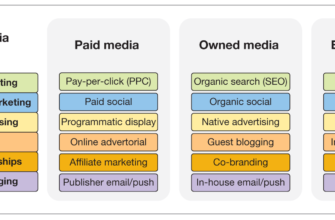ChatGPT’s Availability Across Countries. ChatGPT, an AI-powered chatbot model, has garnered significant attention due to its remarkable capabilities. It serves as a versatile tool, enabling effective virtual communication with users.
While ChatGPT has expanded its availability to numerous regions, there are still areas where it remains inaccessible or restricted. Various factors contribute to these restrictions, necessitating users’ awareness of its availability.
We’re here to assist you in locating ChatGPT. We’ve compiled a comprehensive list of countries where ChatGPT is presently accessible and those where it is not yet available. Armed with this information, you can assess whether ChatGPT aligns with your requirements and plan your usage accordingly.
About ChatGPT
ChatGPT is a deep learning model extensively trained on vast textual data to perform a wide array of natural language processing (NLP) tasks. Built upon the transformer architecture, it excels at generating text, translating languages, analyzing emotions, and even creating chatbots. In essence, ChatGPT serves as a versatile chatbot capable of engaging in conversational question-and-answer interactions, mirroring human conversation.
List of Countries with ChatGPT Availability
ChatGPT, often touted as the world’s most intelligent chatbot by many, has made a profound impact across the globe. OpenAI continually strives to expand its reach to more countries, making it an invaluable tool for both individuals and businesses. Therefore, it’s essential to determine whether ChatGPT is accessible in your country.
- Albania
- Algeria
- Andorra
- Angola
- Antigua and Barbuda
- Argentina
- Armenia
- Australia
- Austria
- Azerbaijan
- Bahamas
- Bangladesh
- Barbados
- Belgium
- Belize
- Benin
- Bhutan
- Bolivia
- Bosnia and Herzegovina
- Botswana
- Brazil
- Brunei
- Bulgaria
- Burkina Faso
- Cabo Verde
- Canada
- Chile
- Colombia
- Comoros
- Congo (Congo-Brazzaville)
- Costa Rica
- Côte d’Ivoire
- Croatia
- Cyprus
- Czechia (Czech Republic)
- Denmark
- Djibouti
- Dominica
- Dominican Republic
- Ecuador
- El Salvador
- Estonia
- Fiji
- Finland
- France
- Gabon
- Gambia
- Georgia
- Germany
- Ghana
- Greece
- Grenada
- Guatemala
- Guinea
- Guinea-Bissau
- Guyana
- Haiti
- Holy See (Vatican City)
- Honduras
- Hungary
- Iceland
- India
- Indonesia
- Iraq
- Ireland
- Israel
- Italy
- Jamaica
- Japan
- Jordan
- Kazakhstan
- Kenya
- Kiribati
- Kuwait
- Kyrgyzstan
- Latvia
- Lebanon
- Lesotho
- Liberia
- Liechtenstein
- Lithuania
- Luxembourg
- Madagascar
- Malawi
- Malaysia
- Maldives
- Mali
- Malta
- Marshall Islands
- Mauritania
- Mauritius
- Mexico
- Micronesia
- Moldova
- Monaco
- Mongolia
- Montenegro
- Morocco
- Mozambique
- Myanmar
- Namibia
- Nauru
- Nepal
- Netherlands
- New Zealand
- Nicaragua
- Niger
- Nigeria
- North Macedonia
- Norway
- Oman
- Pakistan
- Palau
- Palestine
- Panama
- Papua New Guinea
- Paraguay
- Peru
- Philippines
- Poland
- Portugal
- Qatar
- Romania
- Rwanda
- Saint Kitts and Nevis
- Saint Lucia
- Saint Vincent and the Grenadines
- Samoa
- San Marino
- Sao Tome and Principe
- Saudi Arabia
- Senegal
- Serbia
- Seychelles
- Sierra Leone
- Singapore
- Slovakia
- Slovenia
- Solomon Islands
- South Africa
- South Korea
- Spain
- Sri Lanka
- Suriname
- Sweden
- Switzerland
- Taiwan
- Tanzania
- Thailand
- Timor-Leste (East Timor)
- Togo
- Tonga
- Trinidad and Tobago
- Tunisia
- Turkey
- Tuvalu
- Uganda
- Ukraine (with certain exceptions)
- United Arab Emirates
- United Kingdom
- United States of America
- Uruguay
- Vanuatu
- Zambia
Understanding ChatGPT Bans and Limitations
ChatGPT, a substantial language model chatbot crafted by OpenAI, has faced prohibition in numerous nations, including China, Russia, Iran, Syria, Italy, and Cuba. The rationales behind these bans exhibit variations but predominantly revolve around apprehensions related to privacy, security, and the dissemination of disinformation.
In February 2023, China imposed a ban on ChatGPT, citing concerns regarding its potential for disseminating false information. China has a historical record of content censorship, and ChatGPT’s capacity to generate text virtually indistinguishable from human-authored content raised apprehensions of its potential impact.
Russia similarly enacted a ChatGPT ban in February 2023 for geopolitical motives. The Russian government faced allegations of utilizing ChatGPT to propagate pro-Russian propaganda, and the ban was regarded as an effort to curtail the dissemination of such content.
Iran, Syria, and Cuba have enforced ChatGPT bans for analogous grounds. These nations are characterized by authoritarian regimes that fear ChatGPT might be employed to propagate dissent or undermine their control over the internet.
Italy witnessed a ChatGPT ban in March 2023, following findings by the Italian data protection authority that OpenAI was not in compliance with European privacy laws. The authority uncovered that OpenAI was collecting users’ personal data without proper consent and inadequately safeguarding this data against unauthorized access.
OpenAI subsequently undertook measures to address the concerns raised by the Italian data protection authority, leading to the reavailability of ChatGPT in Italy. Nevertheless, this ban underscored the regulatory challenges presented by large language models like ChatGPT. While these models possess immense capabilities, they can also be wielded for malicious purposes. Consequently, governments worldwide are still grappling with formulating regulations that safeguard user privacy and security effectively.
In addition to nationwide bans, OpenAI has also imposed usage limitations on ChatGPT in specific countries, such as China, Iran, North Korea, and Cuba, to align with the respective countries’ laws and regulations.
Should you contemplate utilizing ChatGPT, it is vital to be cognizant of potential risks and restrictions. These risks encompass privacy breaches, security vulnerabilities, and the dissemination of misinformation. Furthermore, it is crucial to acquaint yourself with the particular constraints that pertain to your country of operation.
Conclusion
Access to AI-driven chatbots like ChatGPT may encounter limitations in specific countries owing to stringent internet censorship statutes and rules. Although the unavailability of ChatGPT in certain regions is regrettable, comprehending the motives underlying these restrictions in each nation is essential.
Adhering to local legislation and regulations constitutes a pivotal aspect of the responsible deployment of chatbots and other online offerings. Consequently, enterprises and entities must stay informed about alterations and advancements in internet censorship laws to guarantee the continued accessibility and legality of their services.








